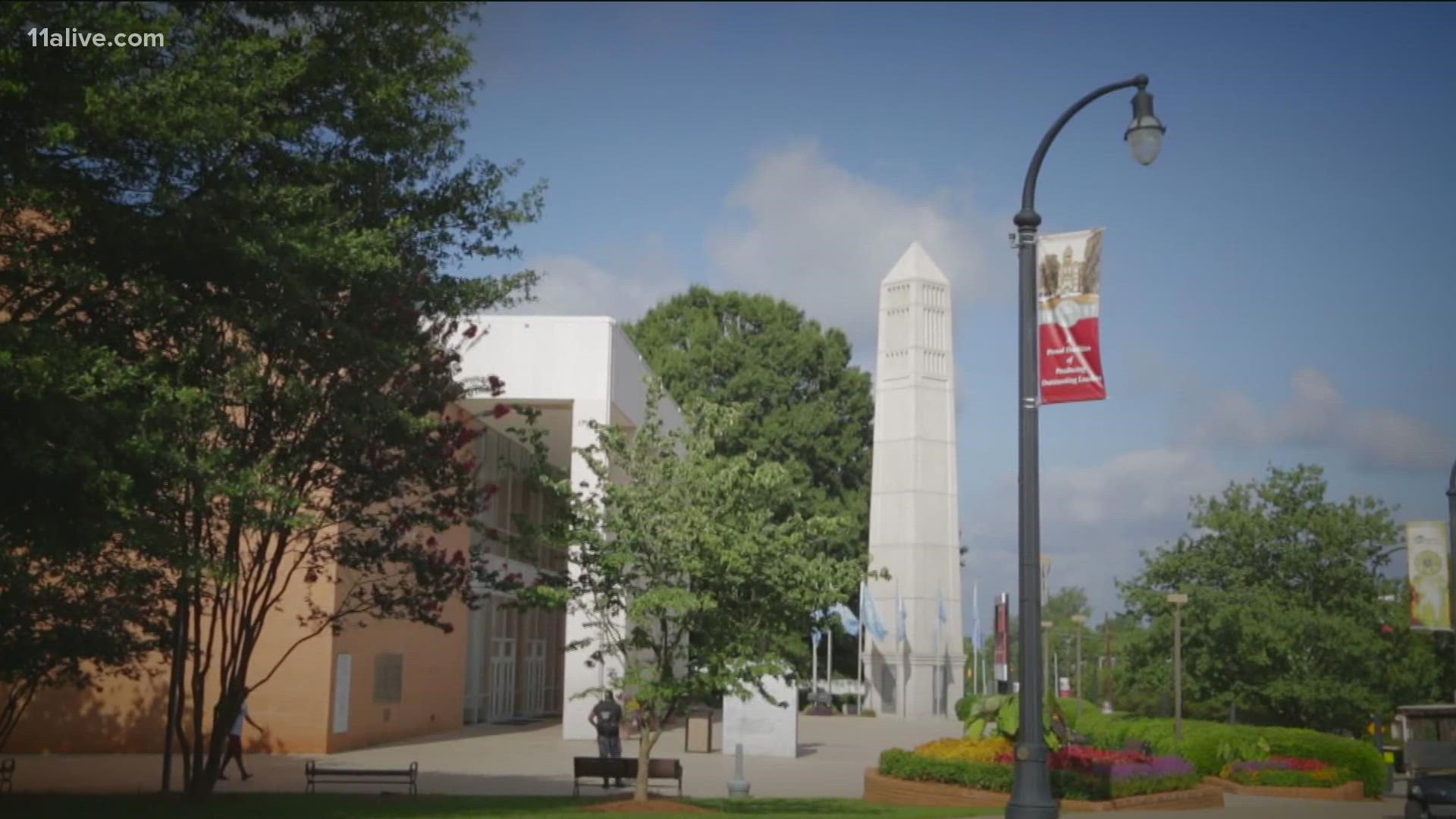ATLANTA — A new partnership between Morehouse College's National Training Institute on Race and Equity (NTIRE) and Google Jigsaw aims to help law enforcement officers and empathize with the people they're serving.
Using virtual reality, groups will be put in different scenarios to help them work through possible outcomes. The goal is to decrease the number of tense interactions between marginalized communities and law enforcement.
"It can go in a variety of directions and that's what makes it so compelling because you can’t predict how a citizen is going to respond or what’s going to happen so it's interactive, there's a lot of artificial intelligence in there and something that we feel is going to be a useful tool for police," Dr. Bryant Marks said.
Marks is an alumnus of Morehouse College and teaches in the college's psychology department. He's also the co-founder of NTIRE. After a colleague approached him about the project, he decided to pursue it because of the work he was already doing training different groups.
Marks explains that bias is a natural, human phenomenon but it can have real-life ramifications, especially when it comes to communities of color. He hopes the technology will supplement the trainings he already oversees to make them more effective.
"We just want to make sure they can identify, manage and mitigate their bias as effectively as possible."
To help with the technological aspect of the initiative, Marks brought on Dr. Kinnis Gosha with the college's Culturally Relevant Computing Lab.
Currently, there are five scenarios that participants will work through. Gosha plans to work with students to adjust the scenarios and potentially create new ones to add to the virtual reality training.
Gosha's lab and NTIRE will both use student input to make the scenarios realistic and address the different experiences of people across the country.
"Where you look, that's data, what you say, that's data. How you say it, that’s data," Gosha said. "All of those points that map this actual engagement out so it’s actually important to make sure that you have folks that understand the technology."
Gosha explains technology is not a cure for the concerns they're trying to address. He does hope this will be a crucial step forward in healing the relationships between marginalized communities and police.
Marks echoed a similar sentiment.
"So they can make those mistakes potentially in virtual reality as opposed to reality so they have some quote-on-quote practice, if you will, prior to facing that situation in a real setting where there's significant and real consequences," he said.
The professors said the project is in its early stages. Marks and Gosha explained they hope to move forward with input from students in January.

